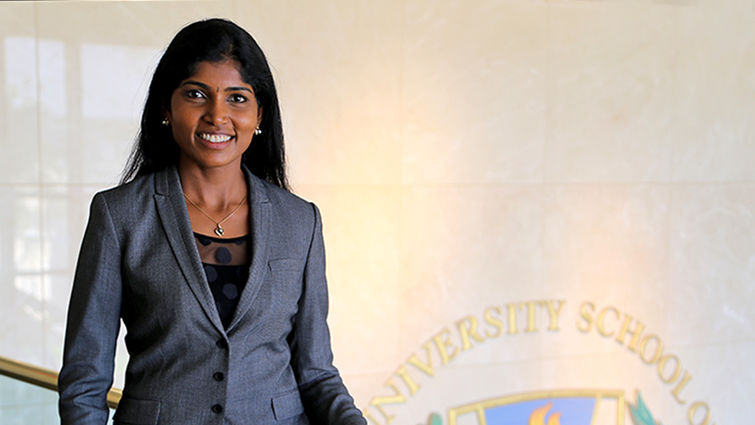
"Patients have no hope if they don't get into the hands of the right physician," says Maheswari Senthil, MD
It’s 3:07 a.m. and Maheswari Senthil, MD, a surgical oncologist at Loma Linda University Cancer Center, looks up from her patient for the first time in 16 hours.
Normally Senthil is home with her family at this hour, but she can’t do that and still save the life of her patient, a 57-year-old man who was diagnosed with Stage IV colorectal cancer a few months ago. The disease has metastasized into the lining of his abdominal cavity, or peritoneum.
Until recently, there was little physicians could do for patients with Stage IV colorectal cancer. Before meeting Senthil, the man had been told his case was hopeless at another hospital and sent home to die. But thanks to breakthroughs in translational research, Senthil can offer the man something he desperately needs.
“Patients have no hope if they don’t get into the hands of the right physician,” she says. “Very few hospitals in the United States offer realistic hope to Stage IV patients.”
But thanks to two new procedures—cytoreductive surgery and hyperthermic intraperitoneal chemotherapy (HIC)—patients of the Loma Linda University Cancer Center can expect much better results. Senthil says that instead of dying in a few weeks or months, the man stands a strong chance of surviving, recovering his health, and living for many more years.
“We have spectacular results at Loma Linda,” she reports. “There is a 5- to 7-percent 90-day, postoperative mortality rate nationally. We have a 0 percent mortality rate over the same period.”
Senthil subjects the organs in the man’s abdomen to heated chemotherapy before removing every cancerous tissue and closing the wound. Right now, she is five-and-a-half hours away from finishing this operation and going home to get some rest. The entire procedure can take 14 to 24 hours and for all of that time, Senthil stands, without a break.
“I recognize the impact of a cancer diagnosis on a patient,” she observes. “Having the physician be with them all the way through from the time they are first diagnosed until their therapy is complete helps them stay positive, fight the fight, and do what is needed.”
When he awakens, the man will hear Senthil’s reassuring voice saying, “I got every last bit of your cancer.”
